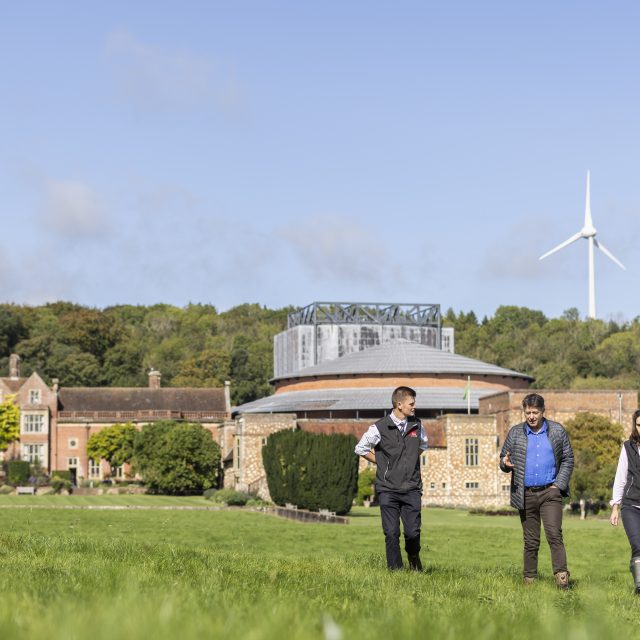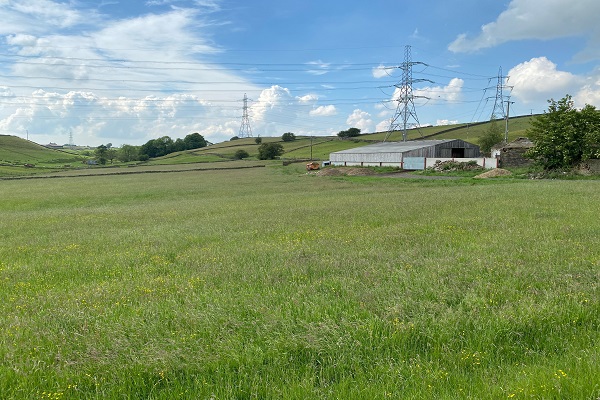Rural sector entering a new era for tax and business planning
The 2024 London Land and Property Briefing saw experts from across the Rural team share their insights on the potential challenges and opportunities facing land managers.
The theme of the event was building resilience, with speakers using an example of a fictional, model estate – called Woodhare – to explore different strategies for rural estates to generate new income streams, reduce risk and protect capital.
They also explored some of the changing trends in the markets for land, country houses and let property.
Here are some highlights:
Do not rush decisions in response to the Budget changes
Kate Moisson, Head of Rural
“We are clearly entering a new era for tax and business planning – for businesses of all sizes – and that is going to involve us all working together to find solutions which work for businesses now and for the future. Our advice to clients continues to be: Do not rush into any decisions and take the time to work with your advisors on the best way forward. People must not bury their heads in the sand, but if you rush things there is potential for yet more unintended consequences. This is a time for taking really considered advice. I would stress that while there are challenges, opportunities still abound – whether that is in development, diversification or the renewables space.”
Estates face significant policy and regulatory changes
Jason Beedell, Director of Rural Research
“Even though estates might look traditional and from the outside a little bit unchanging, the reality is they are facing enormous amounts of change. We have got some very significant policy and regulatory changes on the horizon and a very different political situation. In addition, we have more obvious climate change affecting farming and buildings. It is interesting to note that our hypothetical Woodhare Estate already generates a significant proportion of its profits from non-traditional sources, including renewable energy and commercial property. While we do not expect profits to change significantly in 2025, we think they are more likely to fall than increase due to changes in legislation and regulation, which is leading to greater economic uncertainty. The importance of seizing opportunities to generate capital and new income streams is clear.”
Proactive management of risk is vital for farmers
Jonathan Armitage, Head of Farming
“Building resilience within farming businesses is mostly about managing risk. Farmers are having to deal with increased frequency and impact of things such as changing weather patterns, the removal of government support, increases in input prices and a shortage of skilled labour. Managing these risks in a structured and proactive way is the most important issue facing farmers and often requires significant investment. However, it can also involve using some of the new Environmental Land Management schemes to secure a more fixed income stream at the same time as meeting your environmental goals.”
Tenant expectations are changing
Kathryn Donkin, Director, Lewes Office
“Demand continues to outstrip supply for residential rental properties on farms and estates. Higher interest rates have made property unaffordable for many, whilst the changes to the government schemes to support home buying have impacted the lower end of the market. We are also seeing ‘lifestyle renters’ looking to move to the country, who tend to be looking for the slightly more quirky or larger properties which portray an image and are ‘Instagram-able’. They want good proximity to local amenities, schools and links to transport networks. These tenants may often be willing to pay a premium for the right property, but in return they expect a lot more from their landlord and of the standard of the property. Capital investment may be required for this and consideration of the increased management time to oversee works and manage tenant expectations.”
Opportunities in the renewables sector – but take advice
Nick Bramley, Head of Northern Region
“There is without doubt increased activity in the renewables sector, as part of the drive to secure an increased supply of green, clean energy by 2030. For landowners, leasing land to a renewables developer can be attractive in that the setup costs are minimal and the income is index-linked to inflation through the term. The final coal-fired power station in the UK closed in September which has led to a frenzy of solar applications to secure the available grid capacity in the vicinity. Nationally, there is also an over subscription of battery applications beyond which the UK can accommodate or need at this stage. Therefore, our advice to clients, if approached by a developer, is don’t delay because there is a limit on what the grid network can withstand and what the planners will approve. It is also important to get the right advice before committing or signing anything – as ever, the devil is in the detail.”
Quality is the key to successful wine businesses
Nick Watson, Head of Viticulture and Head of Southern Region
“If we spend a year managing vines in the UK, we will produce about two-thirds of the crop you will get in Continental Europe and our costs are exactly the same. This means the way to build a successful wine business in the UK is to focus on the quality end of the market. We need to compete at the higher price points – hence the focus on sparkling wines. This is where brand also becomes so important, to distinguish your product in the retail and wholesale markets.”
Housing drive will open up new opportunities for landowners
Tom Stanley, National Head of Development
“The Government has decided to try and deliver 1.5 million new homes over the next five years which is an unprecedented level of development. We have not achieved 300,000 new homes built per year consecutively ever and given the context of where we have come from with Covid-19 and inflated build costs we have very little chance of success of meeting those numbers. However, the massive amount of need for new homes will drive opportunities for landowners who want to release land for larger-scale developments in potentially more isolated locations than would typically be achievable.”
Permitted Development changes have opened up possibilities
Yasmin Bell, Surveyor, Harrogate Office
“Recent changes to Permitted Development rights have created greater opportunities for development in the countryside, whether that be through a simple change of use or by using the right as a stepping stone to lead to a more valuable development opportunity. For example, Class Q can be used as a tool for establishing the principles of development on a site and then it is possible to go back in and apply for full planning which can lead to a more valuable scheme. However, it is important to seek advice early on in the process, as certain PD rights that are taken forward can restrict the ability to use other PD rights later down the line. Careful consideration is needed to avoid closing down future opportunities.”
Preventative maintenance is a good investment
Alexander Macfarlane, Building Consultancy
“Preserving the capital values of residential and commercial properties is crucial to ensuring consistent returns on investment and minimising potential losses and requires a proactive and forward-thinking approach. Addressing minor issues today can prevent them from growing into major, costly problems tomorrow. By taking a proactive approach, property owners can reduce long-term costs significantly, avoid unexpected repair expenses, and extend the lifespan of the building’s key components.”
People have many reasons to buy land – not just tax
Sam Holt, National Head of Estates & Farm Agency
“The market is currently close to record levels, with 70% of arable land that has traded in England this year selling for more than £10,000/acre. There will be some impact on the land market from the Budget, but we must remember that inheritance tax reliefs are not the reason people buy farmland, there can be lots of reasons. There are some incredibly popular areas of the country where the land market is flying and is likely to continue to do so. There are other parts of the country dominated by farmer buyers using farming money, who tend to be more cautious because they are dependent on the income that can be derived from the land. In these parts of the world, there may be some downward pressure, but we are not anticipating significant changes.”
Confidence growing in country house market
Oliver Custance Baker, Head of National Country House Department
“The Budget could have been a lot worse for the country house market. The 2% surcharge on second homes is not insignificant, but it is something for buyers and sellers to factor in to their negotiations. More importantly, following months of speculation we now have greater certainty, so buyers should have more confidence to commit. Looking towards 2025, we anticipate market increases, though specific forecasts are challenging as different areas are likely to react in different ways. In terms of other trends, it is interesting to note that buyers want a house that doesn’t need too much work – they want to be able to move in and be settled. We are also seeing a rise in people wanting to buy the majority of furniture from our clients. This works particularly well for those who want to downsize, avoiding the need to put furniture they no longer require into storage.”
‘We must be bolder when it comes to nature restoration’
Joel Paterson, Head of Natural Capital, Scotland
“By enhancing natural capital, not only can you tap into emerging nature markets, such as carbon credits, biodiversity credits, and nutrient neutrality to improve an estate’s financial performance but also future-proof the asset, reduce risk and enhance its resilience. Healthy ecosystems can improve the land’s long-term productivity, reduce soil erosion, improve water retention, and mitigate the impact of extreme weather events. An estate with well-maintained natural capital is increasingly attractive to tenants, visitors and businesses, especially as public awareness and expectations around environmental responsibility grow. In summary, protecting and enhancing an estate’s natural capital assets isn’t just an environmental imperative – it’s a practical, future-focused investment that can strengthen an estate’s financial, ecological and social value.”
For more ideas on building resilience, read the latest issue of Land Business magazine.






